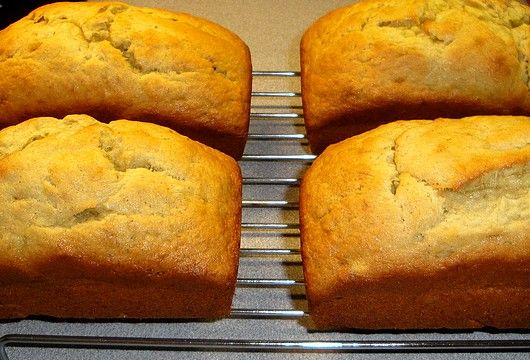Table of Content
The research highlights holes in malaria treatment across the continent and raises questions about an upcoming U.N. Roughly half the children were treated at home while the other half were taken to health clinics within a day of developing a fever. Malaria drugs were distributed to households where parents had been told by researchers to automatically treat their children if they became feverish. Whether the medicine is being used to prevent or to treat malaria.

Chemoprophylaxis kills the blood stage of the malaria parasite and consequently prevents the symptoms of the disease. However, if you contract malaria while taking one type of antimalarial drug, the same drug cannot be used to treat the infection as the parasite may be resistant to it. Malaria is an entirely preventable and treatable disease if tackled early enough. However, there are growing problems with drug resistance that are posing a threat to the global fight against malaria. For persons with intermediate G6PD deficiency, clinicians may consider giving primaquine at 45 mg po once per week for eight weeks with close monitoring for hemolysis. Consultation with an expert in infectious disease and/or tropical medicine is advised if this alternative regimen is considered in intermediate G6PD-deficient individuals.
Who is at risk for malaria?
Guduchi juice may help boost immunity and help fight off infections. The immunity-boosting property of guduchi has been observed in lab trials.8 You can make guduchi juice at home. Strain the blend into a cup and your guduchi juice is ready to drink. Cinnamon is a common kitchen spice with many beneficial properties. For example, in several labs and animal studies, Cinnamon has shown inhibitory action against malaria-causing pathogens.5 You can add cinnamon powder to your herbal teas. You can also take the cinnamon powder with a glass of warm water.

Treatment for malaria will vary depending on which specific species of Plasmodium you were infected with and the severity of the disease. The initiative, led by WHO and the Global Fund to fight AIDS, tuberculosis and malaria, will subsidize the price of artemesinin combination therapies, the most effective malaria treatments. Malaria, which is spread by mosquito bites and carries symptoms such as fever, chills and vomiting, primarily affects poor people in remote areas. Whether the malaria parasite may be resistant to certain medicines. You must not rely on home remedies alone for the treatment of malaria. You should consult a qualified doctor for any advice if the symptoms do not improve with home remedies.
What are the symptoms of malaria?
Globally, the World Health Organization estimates that in 2020, 241 million clinical cases of malaria occurred, and 627,000 people died of malaria, most of them children in Africa. Because malaria causes so much illness and death, the disease is a great drain on many national economies. Since many countries with malaria are already among the poorer nations, the disease maintains a vicious cycle of disease and poverty. According to the WHO, ACTs or chloroquine should be used to treat P. vivax infections in areas without chloroquine-resistant P. vivax. For example, the Centers for Disease Control and World Health Organization have made several treatment recommendations based on the region in which malaria is acquired and the type of malaria species. Often, a combination of medications is used to prevent recurrence and to avoid persistent infections due to medication resistance.

Neem may also help lower the fever and boost the immune system to fasten the recovery.7 You can drink neem tea or chew fresh neem leaves to get its antimalaria effects. Develop and update guidelines for malaria prevention and treatment. However, in general, if you are correctly treated for malaria, the parasites are eliminated and you are no longer infected with malaria. Based on experience with other antimalarial drugs, the quantity of drug transferred in breast milk is not likely to be enough to provide protection against malaria for the infant. The WHO recommends ACTs for treatment of uncomplicated malaria caused by the P. falciparum parasite.
When to Seek Medical Help:
People diagnosed with malaria cannot donate blood for 3 years after treatment, during which time they must have remained free of symptoms of malaria. Your health-care provider and you will decide on the best drug for you, if any, based on your travel plans, medical history, age, drug allergies, pregnancy status, and other factors. The plasmodium parasite is usually transmitted by a particular species of mosquito, which is the anopheles mosquito. If a female anopheles mosquito bites a person who is infected with malaria, the infected mosquito can then carry the plasmodium parasite and spread it to others when it bites and feeds from other people's blood.
Prereferral rectal artesunate and referral completion among children with suspected severe malaria in the Democratic Republic of the Congo, Nigeria and Uganda. If you become ill with a fever during or after travel in a malaria risk area, seek prompt medical attention and tell your healthcare providers of your recent travel history. A bite from an infected Anopheles mosquito passes the parasite to humans. These mosquitoes are found in the tropics and subtropics in almost all countries. Nearly all cases of malaria in the U.S. occur in people who have traveled to other countries. "If you just go on fever, you're over-treating so many children and you could miss other diseases by using malaria drugs," said Dr. Tido von-Schoen Angerer of Medecins Sans Frontieres, aka Doctors Without Borders.
The vision of WHO and the global malaria community is a world free of malaria. This vision will be achieved progressively by countries eliminating malaria from their territories and implementing effective measures to prevent re-establishment of transmission. The vast majority of malaria cases and deaths are found in the WHO African Region, with nearly all cases caused by the Plasmodium falciparum parasite. This parasite is also dominant in other malaria hotspots, including the WHO regions of South-East Asia, Eastern Mediterranean and Western Pacific. In the WHO Region of the Americas, the Plasmodium vivax parasite is predominant, causing 75% of malaria cases. No medication provides 100 percent protection against malaria, so it’s still important to take other steps to reduce your risk of exposure to parasite-carrying mosquitoes.
There are many reported properties of neem that may help with malaria. It may boost the immune system, reduce fever and act against malarial parasites. These properties may help to manage symptoms and promote recovery.7 However, you should consult your healthcare provider if you experience any signs of malaria.
Although designed to treat patients already infected with malaria, some antimalarial medicines can also be used to prevent the disease. Chemoprophylaxis drugs are also given to travellers before entering an area where malaria is endemic and can be highly effective when combined with insecticide-treated nets. Preventive chemotherapyis the use of medicines, either alone or in combination, to prevent malaria infections and their consequences. It requires giving a full treatment course of an antimalarial medicine to vulnerable populations at designated time points during the period of greatest malarial risk, regardless of whether the recipients are infected with malaria. If the traveler develops symptoms of malaria, they should immediately seek medical attention so that they can be examined and diagnosed appropriately.

Prescription anti-malaria medication is the cornerstone of malaria treatment. In rare instances, specialized medical interventions may be necessary to manage some of the adverse complications. Verywell Health articles are reviewed by board-certified physicians and healthcare professionals. These medical reviewers confirm the content is thorough and accurate, reflecting the latest evidence-based research.
You can consume Krishna musali powder with a glass of milk for a speedy recovery.8 Though studies show the benefits of the given herb and home remedies in malaria, these are insufficient. Therefore, there is a need for large-scale human studies to establish the true extent of the benefits of these home remedies against malaria. Thus, these should only be taken cautiously and never as a substitute for medical treatment. Compounds present in neem have shown effectiveness against malarial parasites. Using neem leaves or drinking neem tea may also reduce the chances of contracting malaria.
Previous studies have found home treatment works in rural areas. But malaria is also a problem in cities, and will have to be tackled differently there than in the countryside. In addition, several companies and groups are at work on developing a malaria vaccine, but there is currently no effective malaria vaccine on the market. “Control” of malaria differs from “elimination” or “eradication of malaria.” “Elimination” is local or regional in scope. Eradication is “global elimination.” Eradication is not achieved until malaria is gone from the natural world. Tulsi is a famous herb used in the ayurvedic system of medicine.





